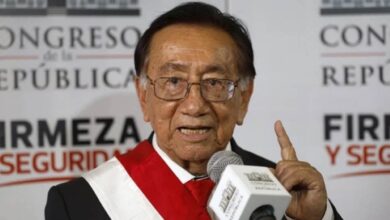Guatemala: The struggle to eliminate corruption
Although the situation has improved compared to previous years, the figures are alarming in the Central American country
Guatemala presidential cabinet has been tainted by corruption once again. Guatemalans three former presidents have been convicted of various crimes related to corruption. Former presidents are:
- Ex-president Alfonso Portillo sentenced to prison in the US for money laundering.
- Ex-president Otto Perez Molina tried for illicit enrichment, customs fraud, among others.
- Ex-president Alvaro Colom, on trial for embezzlement and fraud.
Thanks to the research of the International Commission against Impunity in Guatemala (CICIG, in Spanish) there have been results. Although in previous years, corruption was boundless in that nation, today not only there are known cases, but also those responsible. Furthermore, there is satisfaction and knowledge that people who committed felonies will pay for their crimes.
The most recent case was that of former President Alvaro Colom, who ruled Guatemala from 2008 to 2012. Colom is processed for fraudulently subtracting, according to CICIG, $ 35 million dollars in order to establish a new transportation system in the country. However, Colom was not the only one arrested for this crime, since research also found that nine of its top officials also had connections with this offense.
Hugo Maúl, director of the Economic Area of National Economic Research Center, warns that the figures are alarming for the Guatemalan State as the public body is benefiting criminal structures. Different campaigns have been funded with money from organized crime.
Maúl statement is not so detached from reality, because the current president of Guatemala, Jimmy Morales, is being investigated for corruption. The research has been developed thanks to the CICIG, as expressed Manfredo Marroquin, president of Citizen Action, "I think if there was a commitment with such independence in any country, things like that will be known and would be discovered." These statements are supported by the Guatemalans, who believe that currently the politics and economy of the Central American country are much better than they were in the past.
CICIG work has been perfect; for that reason, Morales, current president of Guatemala, made a strong statement to ensure that Ivan Velasquez, head of the CICIG, was persona non grata to Guatemala. To his surprise, public opinion supports Velasquez and lash out against the president, saying it is a defense mechanism for the research process lengthens against him. In addition, Guatemala's Constitutional Court denied the request to extradite Morales Velasquez. The denial affects President’s work very badly and just a few steps from jail, according to statements by Manfredo Marroquin.
CICIG was established in 2006 through an agreement between the UN and the government of Guatemala. It was established to eradicate corruption at every level of Guatemalan society, focusing especially on its state institutions.
Latin American Post | David García
Translated from “Guatemala: La lucha por eliminar la corrupción”






